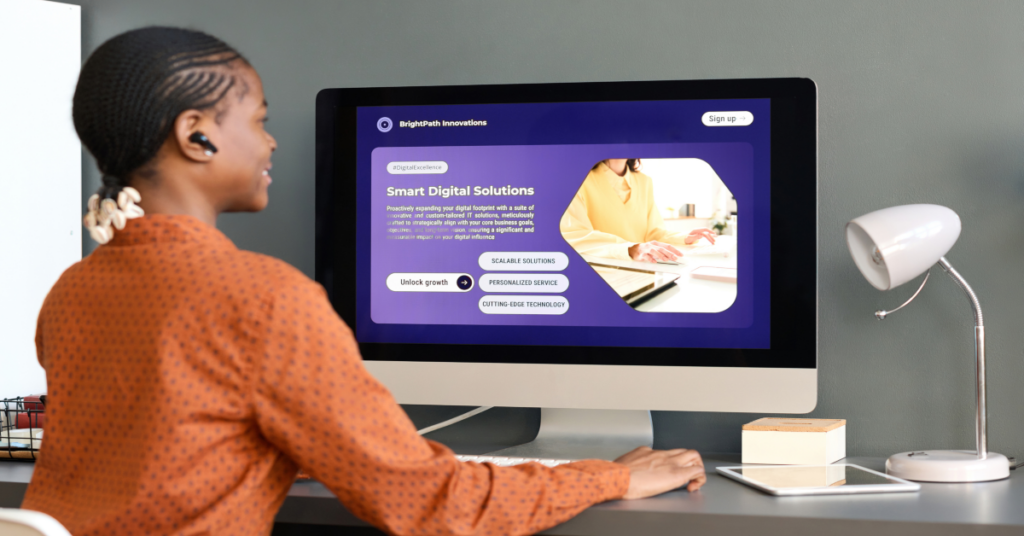AI and Machine Learning in Mobile App Development
Artificial Intelligence (AI) and Machine Learning (ML) have emerged as two of the most revolutionary technologies reshaping the landscape of mobile app development. From personalizing user experiences to automating repetitive tasks, AI and ML are powering mobile apps in ways that were once the domain of science fiction. They are no longer add-ons or advanced features but are becoming essential for app functionality and success. In this article, we’ll explore how AI and machine learning are transforming mobile apps, improving user experience, and what developers need to know to leverage these technologies effectively.
The Rise of AI and Machine Learning in Mobile Apps
In recent years, AI and ML have gained immense popularity due to their ability to process vast amounts of data and extract actionable insights. With the proliferation of smartphones, apps generate massive quantities of data daily, from user behavior and preferences to purchase histories and interactions. Traditional algorithms are limited in processing and analyzing such data, but AI and ML can manage, learn, and improve from this information.
Developers can now integrate AI and ML into mobile apps to provide smarter, more intuitive, and highly personalized experiences. The integration of these technologies has also led to increased automation, enhanced security, and more efficient data handling.
Key Applications of AI and Machine Learning in Mobile Apps
- Personalized User Experience One of the most significant transformations AI and ML have brought to mobile app development is in personalizing user experiences. Mobile apps that leverage machine learning algorithms can analyze user behavior, preferences, and interaction patterns to deliver content and recommendations tailored specifically to individual users.
For instance, Spotify uses machine learning to analyze users’ listening habits, creating personalized playlists such as “Discover Weekly” based on their preferences. Similarly, Netflix uses AI to recommend movies and shows that align with users’ viewing histories, enhancing user satisfaction and retention.
AI-driven personalization has a direct impact on user engagement, making apps more intuitive and helpful. The ability to predict what users want or need before they even realize it themselves creates a seamless and immersive experience.
- Natural Language Processing (NLP) and Conversational Interfaces AI-powered Natural Language Processing (NLP) plays a vital role in enhancing communication between mobile apps and users. Voice assistants like Siri, Google Assistant, and Alexa use NLP to understand and process user commands, enabling hands-free operation of various app functionalities.
NLP algorithms allow apps to comprehend not only the words but also the context and intent behind user commands. This makes interaction smoother, whether it’s for answering questions, setting reminders, or making online purchases through voice commands. Integrating AI chatbots in mobile apps has also become increasingly popular. Chatbots can provide instant support to users, helping with queries, resolving issues, and enhancing customer service.
For example, e-commerce platforms like Sephora and H&M use AI chatbots to assist users with product recommendations, order tracking, and customer support. These chatbots are trained using machine learning, which enables them to continuously improve their responses based on user feedback and interactions.
- Predictive Analytics Machine learning’s ability to analyze historical data and predict future trends is highly valuable in mobile apps. Predictive analytics can forecast user behavior, helping businesses make informed decisions about content creation, marketing strategies, and app features.
For example, mobile banking apps use AI and machine learning to analyze users’ transaction histories and spending habits, offering personalized financial advice or alerts. These insights can warn users about unusual transactions or suggest ways to save money. Similarly, retail apps can predict what items a user is likely to purchase next based on their previous buying patterns, allowing the app to make timely product recommendations.
- Enhanced Security With the rise of mobile usage, app security has become a critical concern for developers and users alike. AI and ML are playing a pivotal role in improving mobile app security through techniques like behavioral analysis and fraud detection.
Machine learning algorithms can analyze user patterns, such as login times, locations, and interaction styles. Any deviations from normal behavior can trigger security protocols like multi-factor authentication or account suspension, protecting users from potential threats.
- Image and Voice Recognition AI’s capabilities extend into the realms of image and voice recognition, enabling more intuitive and engaging app interactions. Apps like Google Photos use machine learning to recognize faces, objects, and locations in images, automatically organizing users’ photo libraries.
Facial recognition, powered by AI, is also used for secure logins in apps like Apple’s Face ID. The same technology is applied in mobile payment apps, enabling users to authenticate transactions without needing passwords or pins.
Voice recognition is transforming the way users interact with apps, particularly through voice search and voice commands. Apps like Shazam can recognize music tracks from just a few seconds of audio input, while apps like Google Translate use AI-powered speech recognition to offer real-time translations. This level of interaction not only simplifies usage but also opens up accessibility for users with disabilities.
- Augmented Reality (AR) and Computer Vision The combination of AI, machine learning, and computer vision has elevated the development of augmented reality apps. AI enhances AR apps by analyzing the real-world environment and adjusting virtual elements in real time to create a seamless experience.
Apps like IKEA Place allow users to place virtual furniture in their real-world space, helping them visualize how products will look before purchasing. Snapchat and Instagram use AI and computer vision for face filters, recognizing facial features in real time and adding interactive effects.
In industries such as healthcare and education, AI-driven AR apps are enabling new levels of interactive learning. For example, medical apps can overlay virtual anatomy models onto real patients, helping doctors and students visualize diagnoses and treatments.
How AI and Machine Learning Improve User Experience (UX)
The ultimate goal of integrating AI and machine learning into mobile app development is to improve the user experience (UX). Here’s how these technologies are enhancing UX across various app categories:
- Seamless Personalization AI-driven personalization offers users content, products, and services tailored specifically to their interests, habits, and needs. This level of customization ensures that users spend less time searching for what they want and more time engaging with content or features that interest them. The more an app “learns” about its user, the more it can adapt to provide a relevant and meaningful experience.
- Faster and More Accurate Interactions AI-powered chatbots and voice assistants enable users to complete tasks quickly and efficiently. Whether it’s booking a flight, ordering food, or troubleshooting issues, conversational interfaces reduce the friction of typing or searching manually. Apps become more user-friendly by offering faster and more accurate responses, improving overall satisfaction.
- Proactive Problem-Solving Predictive analytics enable apps to solve problems before they even arise. Whether it’s through fraud detection, alerting users to potential risks, or offering personalized suggestions to prevent issues, AI can make apps more proactive rather than reactive. For example, fitness apps can alert users if they’re falling behind on their goals and suggest tips to get back on track, enhancing user engagement.
- Improved Accessibility AI and machine learning have opened up new possibilities for accessibility in mobile apps. Voice recognition, text-to-speech, and machine learning-powered language translation are making apps more inclusive for users with disabilities. These features allow a broader audience to interact with apps in a way that meets their needs, ensuring that apps remain user-friendly for all demographics.
- Dynamic User Interfaces AI enables mobile apps to offer dynamic interfaces that adapt based on user behavior. Machine learning can monitor how users interact with the app and make real-time adjustments to improve usability. For example, a music app may reorganize its navigation or suggest different playlists depending on the time of day or the user’s mood. Dynamic interfaces create a personalized and engaging user experience, encouraging long-term app loyalty.
Challenges in Integrating AI and Machine Learning
While AI and machine learning are powerful tools for mobile app development, their integration does not come without challenges. Some of these include:
- Data Privacy Concerns Since AI and ML depend heavily on data, protecting user privacy is a significant concern. Developers must ensure that they collect, store, and use data ethically and comply with regulations like the General Data Protection Regulation (GDPR) and California Consumer Privacy Act (CCPA).
- Resource-Intensive Development Building AI and ML models requires significant resources in terms of data, computation power, and time. Small development teams or startups may face challenges in acquiring the resources needed to integrate AI effectively.
- Continuous Learning and Updating AI and ML models need to be continuously trained and updated to stay relevant and effective. This ongoing process can add complexity to app maintenance, as developers need to monitor and adjust models based on new data.
Conclusion
AI and machine learning are revolutionizing mobile app development by offering personalized experiences, enhanced security, and intelligent automation. These technologies have already transformed apps across industries such as healthcare, retail, finance, and entertainment. As AI and ML continue to evolve, their potential to improve mobile apps will only grow, leading to more dynamic, intuitive, and engaging user experiences.
Developers who embrace AI and machine learning can position themselves at the forefront of innovation, creating apps that are not only smart but also adaptive, secure, and highly personalized. However, integrating these technologies requires thoughtful consideration of data privacy, computational resources, and continuous learning. Ultimately, AI and ML have the power to push the boundaries of what’s possible in mobile app development, making apps more efficient, user-centric, and future-ready.



